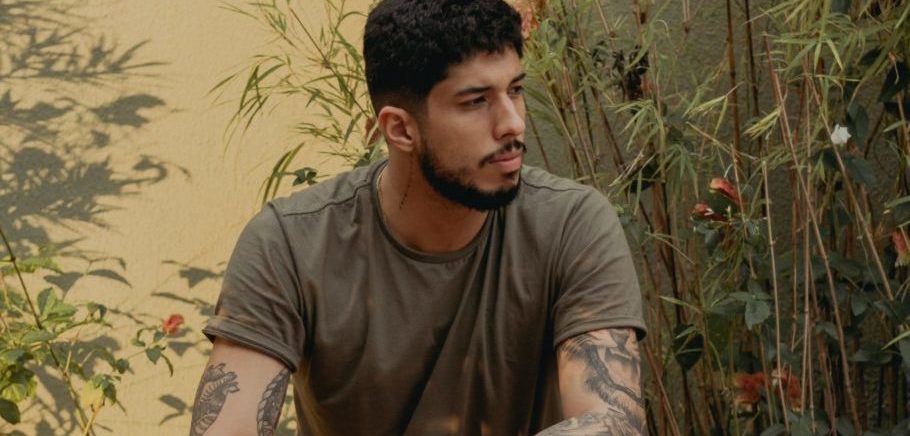The below is an expanded version of our portfolio profile about The Way Back.
The Way Back helps men to “find their way back to their authentic selves.” A residential drug and alcohol abuse treatment program treating men since 1971, The Way Back supports its residents to find that authenticity of living a life of long-term sobriety, backed by evidence-based programming. One of few Drug Medi-Cal Organized Delivery System (DMC-ODS) facilities in San Diego County that allows residents to work during their treatment, The Way Back puts special emphasis on holistic wellness and encourages clients to participate in all areas of life that will help facilitate a healthy and successful transition back into the community.
“Treatment means treating the whole person,” says Thomas. “What are all the needs? [The Way Back helps clients with] physical and mental health, setting up with primary care physician, dentist, and therapist while living at The Way Back if necessary.”
The Way Back uses trauma-informed care in its client activities—clinical groups, education groups, mindfulness meditation, relapse prevention groups, codependency groups, anger management, emotional regulation, and individual psychotherapy.
“We are training men to be better fathers, better husbands, better employees, to stay out of prison, to work, to communicate,” says The Way Back Executive Director Chris Thomas, a licensed therapist who has been sober for 25 years. “Men are an important part of family structure, and addiction is a family disease.”
Another part of treating the whole person means tapping into strength-based care. “We help clients identify their superpowers,” says Thomas. Strength-based treatment—rather than focusing on shortcomings—is important in the recovery process, because it promotes the individual’s wellbeing, self-awareness, self-respect, self-esteem, independence, resilience, and ability to make choices.
The activities at The Way Back also emphasize nonjudgmental care. For instance, a sex-positive relationships workshop provides space for residents to openly discuss past sexual experiences that occurred while on their drug(s) of choice, as well as reminders of the effective use of condoms, conversations about consent (as in someone who is altered isn’t able to give consent), and messaging around taking care to not become too vulnerable too soon in a new relationship. These frank conversations offer a safe space for residents to reset and reframe expectations.
“There’s enough shame and guilt [in recovery],” says Thomas. “We don’t want to add more of that. We hold no judgment about habits and sexual activity.”
Another part of what makes the programming at The Way Back holistic is its focus on concurrent treatment for substance use and co-occurring mental health disorders.
Staff pay attention to each client’s mind, body, and spirit during the recovery process. The seven foundations of recovery as outlined by The Way Back include:
- Enhancing or maintaining motivation
- Coping with cravings
- Managing emotions
- Nurturing healthy relationships
- Balancing life
- Living with a higher purpose, and
- Securing aftercare and outpatient services
While The Way Back adheres to an abstinence-based method of rehabilitation from substance use, if a client lapses while in treatment, he will be reassessed and continue treatment or be referred to a higher level of care.
It is telling that how Thomas defines success is if a client has experienced more days of sobriety this year than last—it’s not about conventional “success stories” with a neat ending, as treatment and life are ongoing journeys; progress is key.
The Way Back receives government payments from the County of San Diego, critical in providing recovery services supporting the success of economically vulnerable individuals.
With new leadership and a recent shift to fully operationalizing the DMC-ODS program, The Way Back requires general working capital to manage cash flow gaps between invoicing and reimbursement of services by the county and steady existing operations.
The Way Back approached its existing bank partner to secure a line of credit and loan, both of which were denied. However, during one the phone calls between The Way Back and their bank, someone suggested Thomas reach out to Mission Driven Finance.
“Once I heard about Mission Driven Finance’s mission, I knew it matched our core beliefs,” says Thomas. “I believe in doing good and doing well at the same time. And the technical assistance [that Mission Driven Finance provided] alone is worth the interest.”
Mission Driven Finance recognized the deep and meaningful impact The Way Back has on their clients, and offered a $150,000 loan for the residential program to use as needed for general working capital—including paying staff and bills on time—while they enhance their credit position to reapply for a line of credit from their banking partner.
“A revolving line of credit [would help us] become self-sustaining so we won’t need any more loans,” says Thomas.
Over the course of the Mission Driven Finance loan, The Way Back plans to continue to operate its current 22-bed residence and potentially increase capacity to 24. The Way Back will provide evidence-based treatment to an estimated 150 clients in need, annually.
You too can support The Way Back’s residential program by following them on Facebook and donating here (the money goes not to operational funds but residents funds for hygiene kits, clothing, etc.).


